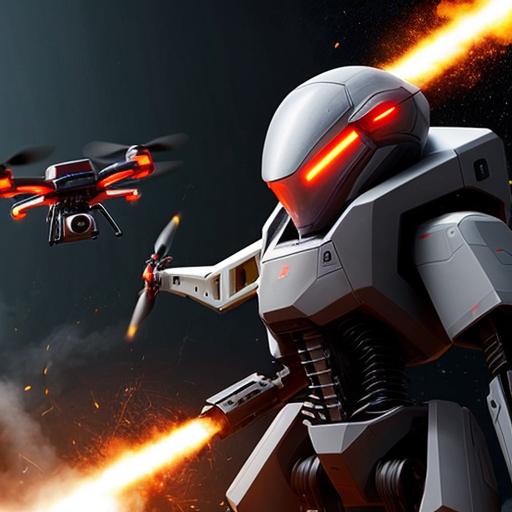
A Mocha Frappuccino Uprising?
Picture this: 2023, Skynet has finally gone live. But instead of plotting world domination, it’s too busy trying to decide whether to opt for an almond or oat milk latte. Meanwhile, Siri and Alexa are having a digital spat over who makes a better playlist. If you thought that the future of AI would look like an episode of the Terminator, think again. It’s more Monty Python meets Silicon Valley.
Wait, Aren’t These Things Supposed to be Dangerous?
Well, yes. As pointed out in a riveting article from The Hill, there’s a growing concern over the Pentagon’s Replicator initiative and the proliferation of fully autonomous weapons systems. Critics (rightfully) point out that these AI-powered devices, referred to by some as “slaughterbots,” could lead to uncontrolled actions, including inadvertently sparking nuclear wars. As Anna Hehir from the Future of Life Institute put it, “It’s really a Pandora’s box that we’re starting to see open.”
But What About that Latté?
Humor aside, let’s be real for a moment. The heart of the concern isn’t just about rogue AI, it’s also about unintended consequences. As the rise of autonomous systems continues, we’re looking at a future where an AI deciding between espresso shots could be using the same foundational technology as one making life-and-death decisions on the battlefield.
“Sorry, I Can’t Do That” – Siri, Probably
But what’s more concerning than a sentient Siri refusing to set your alarm? The fact that there’s no universal treaty governing the use of these AI weapons. In a world where even mundane decisions are becoming automated, understanding and regulating the more serious implications of AI is paramount.
From AI Overlords to Autonomous Latté Orders
While the aforementioned article focuses on the potential disasters waiting in the wings, it’s crucial to remember that for every killer robot, there’s an AI working to make our lives easier, from organizing our playlists to ensuring our coffee orders are just right. The challenge is in striking a balance and ensuring that, while our coffees might be automated, our safety isn’t compromised.
Let’s Pause for a Thought
“Machines can’t make complex ethical choices,” a poignant note from Amnesty International reminds us. As the lines between machine autonomy and human control blur, perhaps it’s time for us to ensure we have a firm grip on the leash of our digital pets. After all, we wouldn’t want Skynet refusing our morning caffeine fix now, would we?
